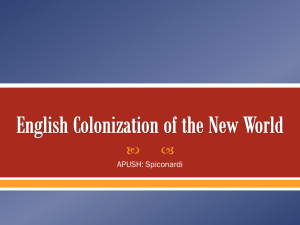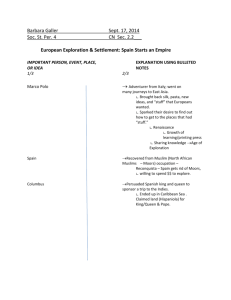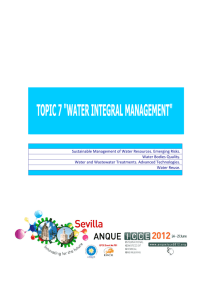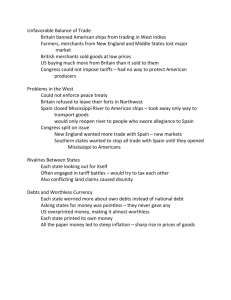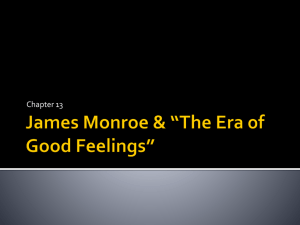MOVESMART presentation - Universidad de Deusto
advertisement
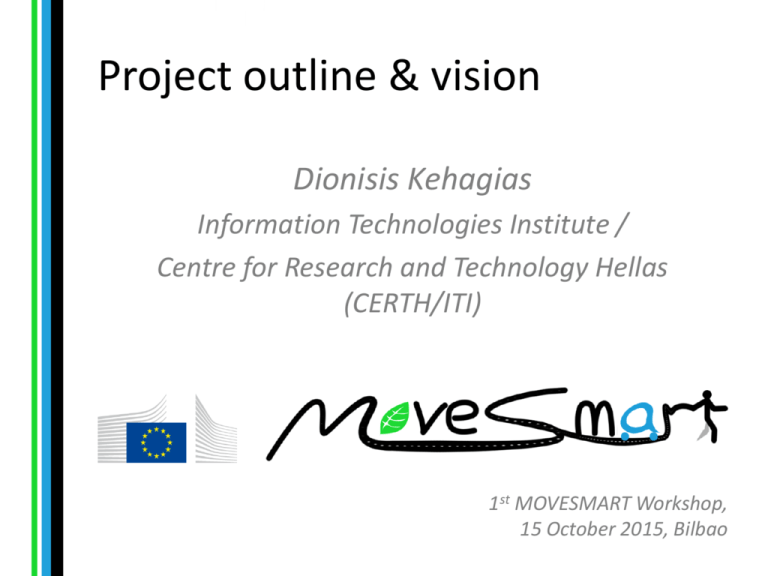
Project outline & vision
Dionisis Kehagias
Information Technologies Institute /
Centre for Research and Technology Hellas
(CERTH/ITI)
1st MOVESMART Workshop,
15 October 2015, Bilbao
The Consortium
Short
name
Country
Ayuntamiento de Vitoria-Gasteiz
AVG
Spain
2
Business Innovation Brokers S. Coop., Spain
BiB
Spain
3
Centre for Research and Technology Hellas /
Information Technologies Institute
CERTH
Greece
4
Computer Technology Institute & Press
“Diophantus”
CTI
Greece
5
Karlsruher Institut Fuer Technologie, Institute
of Theoretical Informatics
KIT
Germany
6
Universidad de la Iglesia De Deusto, Energy
Unit
UD
Spain
7
South West College
SWC
UK
8
Grad Pula – Pola
PULA
Croatia
9
Going Green SL, Spain
GG
Spain
10
MLS Multimedia SA
MLS
Greece
Beneficiary Number
Beneficiary name
1
(Coordinator)
11
Flexiant Limited
FLEX
UK
1st MOVESMART Workshop – 15 October
2015 – Bilbao, Spain
Brussels, 7/5/2012
2
The Vision of MOVESMART
Real time
traffic
prediction
Public
transport
integration
Crowd
sourcing
Time-dependent route
planning
in
large-scale urban-traffic
networks
Electromobility
Car sharing/
pooling
• Energy efficiency
• Eco-friendliness
3
1st MOVESMART Workshop – 15 October 2015 – Bilbao, Spain
Main Project Objectives
Enable
Develop
Optimised energy efficient personal
mobility services for commuters and
travellers in urban environments
• Crowd sourcing techniques for collecting
real time user feedback for more efficient
traffic prediction
• Innovative energy-efficient time-dependent
renewable routing paradigms
Deploy
The proposed personal mobility concept
in real operating environments in 2 cities
Define
A set of appropriate Business Models on
top of the newly enabled mobility
services
1st MOVESMART Workshop – 15 October 2015 – Bilbao, Spain
The Urban Traffic
Knowledge Base (UTKB)
maintains appropriate
traffic information
MOVESMART Concept
Periodic traffic-sensing
data will be assessed and
exploited via the Traffic
Prediction module
Crowd-sourcing of Traffic
Information for
supporting online
emergency reports
The Urban-traffic cloud
(UT-Cloud) architecture
integrates the involved
technologies
1st MOVESMART Workshop – 15 October 2015 – Bilbao, Spain
Pilot 1: Municipality of Vitoria-Gasteiz
•
Site Characteristics
–
–
–
–
–
•
Population: 235,000 people
Area: 280 Km2
Density: 860 inhabitants per Km2
Bus Public Transportation network
EV charging points
Scope & Purpose
– Test the proposed solutions in a large
sized urban environment
– Deploy a MoD system, to cover
sustainable mobility in the city’s urban
area
– Electric motorbikes
– To reverse the upward trend in the use of
the private car
– Deal with the “first mile-last mile”
problem
– Test the envisaged solutions and evaluate
them with respect to their environmental
impact and energy gains
1st MOVESMART Workshop – 15 October 2015 – Bilbao, Spain
Pilot 2: Municipality of Pula-Pola
•
Site Characteristics
–
–
–
–
–
Population: 90,000 people
Area: 51.6 Km2
Density: 1,093.27 inhabitants per Km2
Bus Public Transportation network
Part of EuroVelo 9, one of the Largest
European bicycle networks
– Walkable city
•
Scope & Purpose
– Test the proposed solutions in a small sized
urban environment
– Improve sustainable mobility modes by
deploying a fleet of electric bikes
– Bike sharing systems based on RFID cards
– Improve transportation resources offering
sustainable, rational and technologically
advanced alternatives
– Increase touristic interest in the city
1st MOVESMART Workshop – 15 October 2015 – Bilbao, Spain
Key Technologies
• Renewable Multimodal Mobility
• Incentivized Vehicle Sharing
• Crowd sourcing techniques for Real Time
Traffic reporting and prediction
• User information Reliability Assessment
Mechanisms
• Cloud Computing
• Mobile Computing
1st MOVESMART Workshop – 15 October 2015 – Bilbao, Spain
MOVESMART Innovations
• Crowd-sourcing technologies for ITS:
For collecting and exploiting real-time reports of transportation
experience from the users themselves, preserving data privacy and
anonymity. User feedback is taken into account for assessing the
crowd-sourced information
• Vehicular traffic prediction techniques under atypical conditions:
Integration of real-time crowd sourcing information, e.g. occurrence
of traffic accidents, rapid traffic changes, weather phenomena, etc.
• Computationally efficient route planning:
Lightweight implementation of high-precision time-dependent
multimodal route planning within the processing limitations of
handheld devices and real time constraints
1st MOVESMART Workshop – 15 October 2015 – Bilbao, Spain
MOVESMART Innovations
• Renewable Multimodal Mobility:
Develop route planning algorithms particularly tailored for Electric
Vehicles for providing the uninterruptible operation of the whole flee
• Cloud Computing:
Cloud platform for supporting the vast storage, processing and real time
communication requirements of high-performance and energy-efficient
ITS
• Business models:
New business models to reduce personal mobility costs
– Mobile Crowd-sourcing on demand
– Incentivised Vehicle Sharing
– Integrated Energy-Efficient Personal Mobility
1st MOVESMART Workshop – 15 October 2015 – Bilbao, Spain
Project Achievements up to now
• Innovative reliability assessment framework for crowd sourcing data
• Innovative traffic prediction techniques based on crowd sourcing data
– Integrate detection of abnormal traffic events for more accurate traffic
prediction as opposed to the traditional approaches
• Crowd sourcing data management back-end on the cloud supporting
security
• Live Traffic Reporter client application for Android and iOS
• Innovative multimodal route planning algorithms that encompasses
EV-mobility
• Energy efficiency estimation models for EV
• New algorithmic approaches for supporting incentives for vehiclesharing services
• Innovative mobility-on-demand business models
1st MOVESMART Workshop – 15 October 2015 – Bilbao, Spain
Crowd sourcing data
• On-route data (collected on users’ consent as they are moving):
– user location
– user speed
• Post-route data:
– Relevance Feedback
• Emergency data:
–
–
–
–
Weather info (e.g. sudden change of weather conditions)
Incidents (e.g., accidents, demonstrations, etc.)
Public Transport info (e.g. bus delays)
Traffic info (e.g. report of high congestion).
1st MOVESMART Workshop – 15 October 2015 – Bilbao, Spain
Live Traffic Reporter
Available at : http://www.movesmartfp7.eu
• Allows users to send reports about real
time incidents
• Four types of incidents are supported:
traffic congestion, weather, works and
accidents
• In order to ensure the reliability of the
reported incidents, users are asked to
validate the report in question
• An advanced estimation model
calculates the reliability of the report
based on the speed and location of the
reporting user, among other features
1st MOVESMART Workshop – 15 October 2015 – Bilbao, Spain
Renewable Mobility Algorithmic Approaches
Highlight – 1
Speed-Consumption Tradeoff for Electric Vehicle Route Planning
Electric Vehicles (EVs):
• Future means of transportation
• Run on regenerative energy sources
Downsides of EVs:
• Restricted battery capacity
• Long recharging times
• “Range anxiety”
Consider energy consumption in route planning applications
Results:
• Trade travel time and energy consumption via Pareto optimization
• Driving road segments at different speed
• Accelerated query times hours to <1s (very little error)
1st MOVESMART Workshop – 15 October 2015 – Bilbao, Spain
Renewable Mobility Algorithmic Approaches
Highlight – 2
Towards Route Planning Algorithms for Electric Vehicles with Realistic Constraints
Electric Vehicles (EVs):
• Future means of transportation
• Run on regenerative energy sources
Downsides of EVs:
• Restricted battery capacity
• Long recharging times
• “Range anxiety”
Include recharging duration in computation of fastest routes
Results:
• Query times from hours/minutes speed up to at minutes/seconds
• Multiple charging stations with different charging speeds supported
• Very fast heuristics that compute nearly optimal solutions
• Can be extended to compute eco-friendly routes
1st MOVESMART Workshop – 15 October 2015 – Bilbao, Spain
Renewable Mobility Algorithmic Approaches
Algorithmic development
Occupancy: 15%
S2
S1
B
S3
A
Occupancy: 80%
Incentivized Vehicle-Sharing: Derive route/parking alternatives that effectively
incentivize users and maximize the number of satisfied user requests under priority for
vehicle relocations
Alternative routes
• A S1 S3 B (shortest time)
• A S1 S2 B (incentivized scheme)
1st MOVESMART Workshop – 15 October 2015 – Bilbao, Spain
Renewable Mobility Algorithmic Approaches
Algorithmic development
Occupancy: 15%
S2
S1
S3
A
Occupancy: 80%
Incentivized Vehicle-sharing Sheme(IVS)
Decision Model
•
•
•
IVS incentivizes requests depending on the priorities of S2S vehicle relocations
Users place a value on the additional cost (effort) and/or time to change their original
(destination) station
Incentives counterbalance this additional cost
Approach
•
•
Computing an optimal set of route suggestions optimizing stations’ occupancies, therefore
maximizing the profit of the VSS
Design a pricing policy and a mechanism for deciding the set of route suggestions while
ensuring budget feasibility and/or incentive compatibility
1st MOVESMART Workshop – 15 October 2015 – Bilbao, Spain
B
Renewable Mobility Algorithmic Approaches
Algorithmic development
Incentivized Vehicle-sharing Scheme(IVS) - explained
Priorities
•
Capture the difference between developing occupancies (i.e. active reservations) and desired
(target) occupancies – target occupancies for each time slot form an ideal distribution for the system to
maximize social welfare (profit + satisfied requests) effortlessly. They are best determined by statistical
analysis of historical data.
Optimization
•
weighted 3-set {requests, vehicles, parking spaces} packing problem (weights: relocation
priorities)
Maximum weight IS problem on 4-claw free graphs (2-approximability).
IVS Refund Mechanism (2 options)
Uniform Rate refund mechanism
Simple Proportional refund mechanism
Uniform-rate refund for all users based on
user costs and relocation priorities
Adopted refund proportional to relocation
priorities
No user costs are taken into account
One-way truthful
Budget -feasible
Budget –feasible
1st MOVESMART Workshop – 15 October 2015 – Bilbao, Spain
Energy-efficient Multimodal Route Planning
Highlight – 1
Electricity (ES mix)
Transport fuels (EU)
Global warming potential
(GWP 100a, IPCC 2013)
kg CO2 eq/MJ
Global warming potential (GWP 100a, IPCC 2013)
0.06
0.05
0.04
0.03
0.02
0.01
0.00
0.45
21%
31%
3%
0.35
Oil
kg CO2 eq/kWh
MJ input/MJ output
15%
15%
Cumulative energy demand (CED v1.08)
1.00
1%
12%
0.4
0.3
1.50
1%
Wind
Natural gas
0.2
0.05
22%
2011
9%
26%
19%
4%
Solar
Hydro
0.00
17%
Hard coal
0.15
0.1
1%
Co-generation
0.25
0.50
2%
Nuclear
2%
20%
2012
1%
21%
15%
21%
14%
0
5%
2011 2012 2013
1st MOVESMART Workshop – 15 October 2015 – Bilbao, Spain
2013
Energy-efficient Multimodal Route Planning
Highlight – 2
Conventional passenger cars
Electric vehicles
• Dynamic emission factors from
Handbook Emission Factors for Road
Transport (HBEFA)
• Physics-based vehicle model
Estimation of traction power, i.e.
power required to overcome the
forces opposing to the movement of
the vehicle and drive it at speed u
• Integrated in a MongoDB:
– Inputs:
Traffic situation
Road gradient
Car engine technology
Engine size class
Emission class
Fuel type (for bifuel vehicles)
– Outputs:
• EV components model
Transformation of traction power
requirements (at wheels) into EV
battery power requirements
Accessories
Emission factors for CO2, CH4, N2O
Fuel consumption
Battery
Normal forward driving
Regenerative braking
Motor &
controller
Gear
system
Wheels
Energy flows in typical battery powered EVs
1st MOVESMART Workshop – 15 October 2015 – Bilbao, Spain
Energy-efficient Multimodal Route Planning
Highlight – 3
Development of Energy Efficiency
Assessment Module (EEAM) as
web-service:
• Purpose: Integration of
components for energy efficiency
assessment of multimodal routes
• Challenge: Low response time
• Approach:
– Split route into legs by mode of
transport
– Parallel queries to databases of
emission/consumption factors
– Parallel processing of route legs
1st MOVESMART Workshop – 15 October 2015 – Bilbao, Spain
Outlook
• This year the main technical developments
have been completed - ready for the pilots
• We seek collaborations with other project
in the area of ITS for exchanging ideas and
joining forces
• We expect to establish a considerable user
base in addition to the pilot users
• Innovative business models
1st MOVESMART Workshop – 15 October 2015 – Bilbao, Spain
Download MOVESMART
http://www.movesmartfp7.eu/
1st MOVESMART Workshop – 15 October 2015 – Bilbao, Spain
Q&A
1st MOVESMART Workshop – 15 October 2015 – Bilbao, Spain

